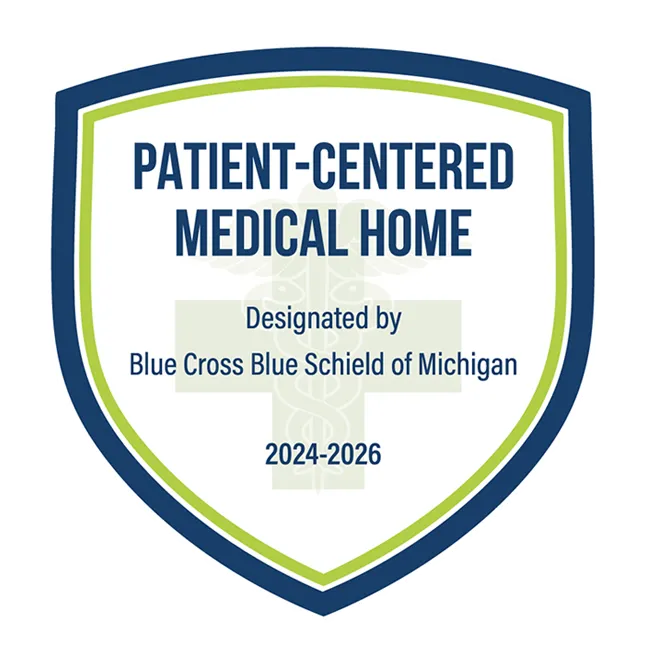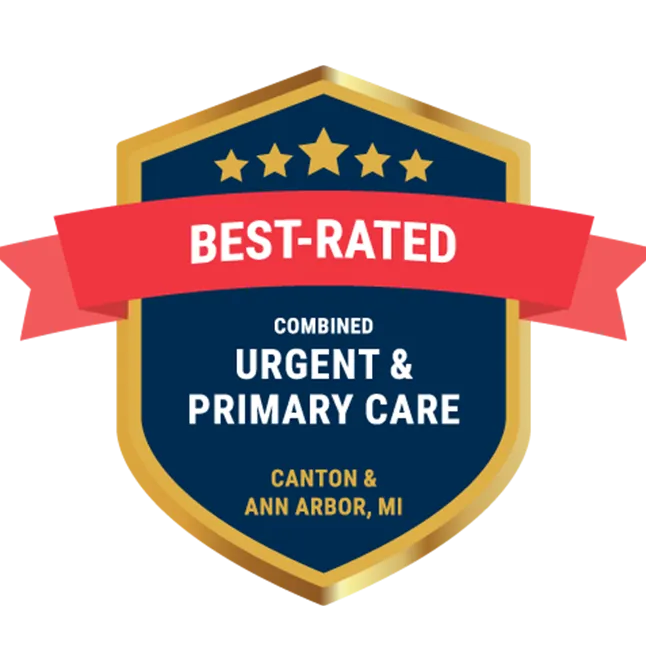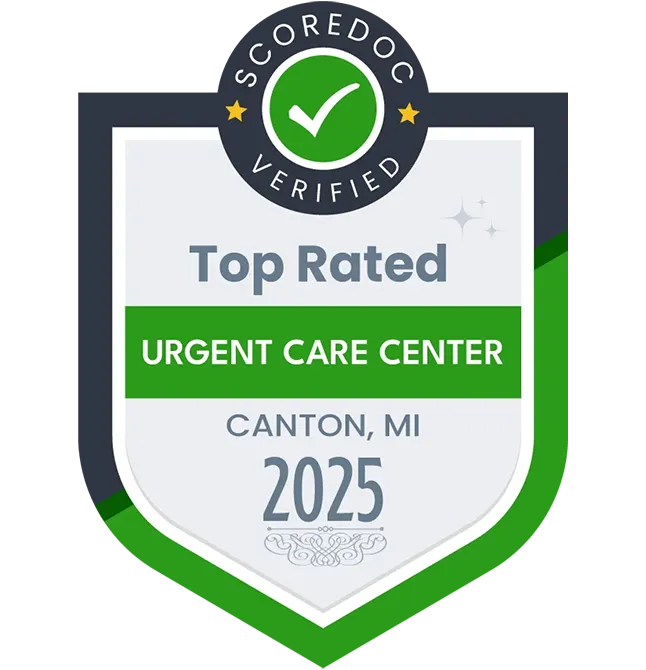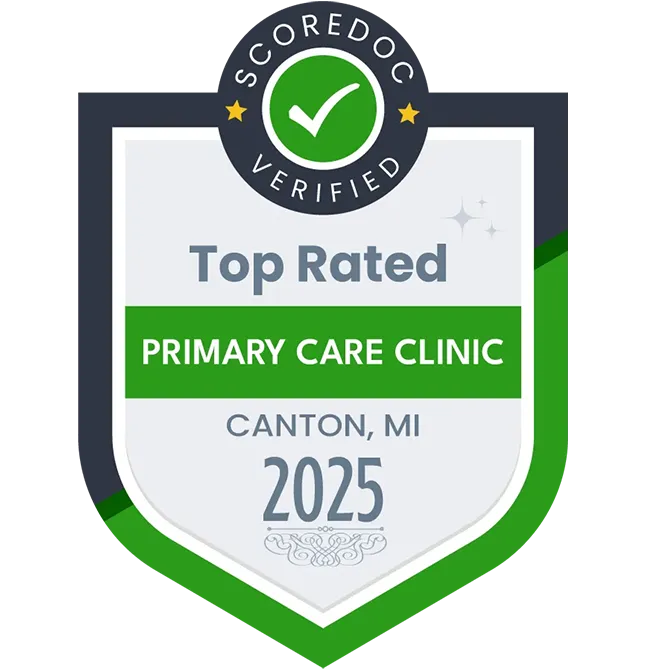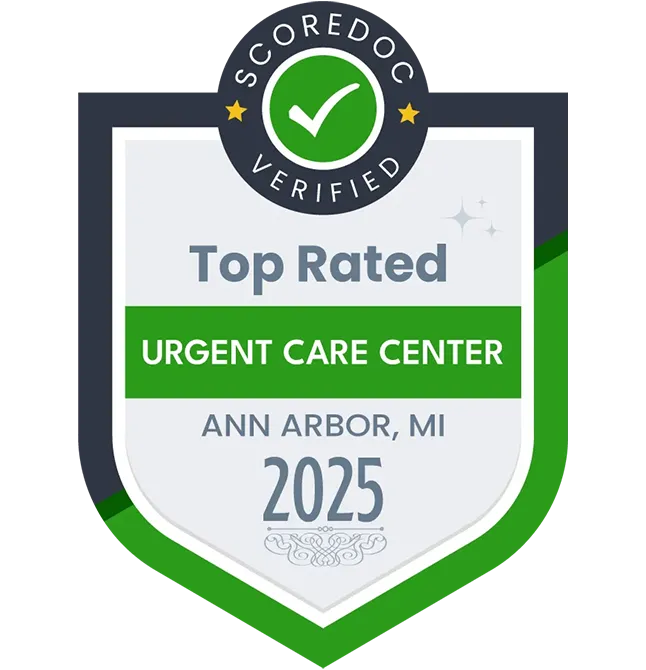

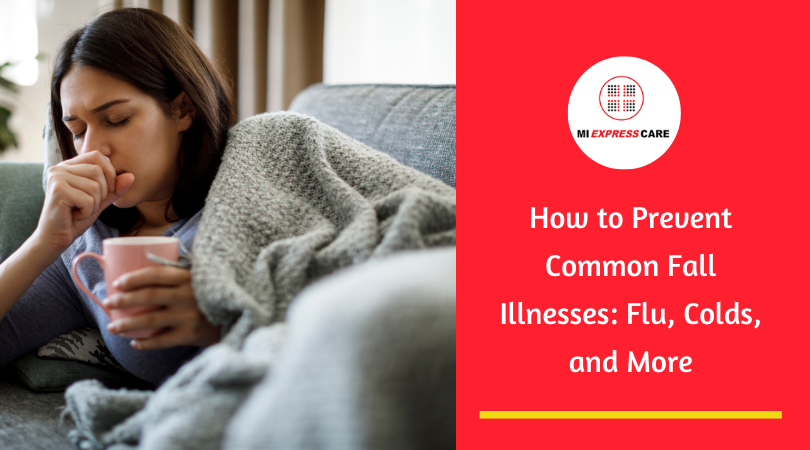
As fall approaches, so does an increase in seasonal illnesses. Cooler temperatures, dry air, and indoor gatherings create the ideal environment for viruses and allergies to thrive.
Common fall illnesses include the flu, colds, strep throat, and seasonal allergies, all of which affect thousands every year. Recognizing why these illnesses are so common and taking preventive measures is key.
With the right strategies, you can reduce your risk, strengthen your immune system, and stay healthy throughout the season.
Every year, doctors see a spike in respiratory illnesses once the weather turns cooler. But why is fall such a hotspot for sickness?
Weather changes: Cooler temperatures and dry air can weaken your immune defenses and dry out nasal passages, making it easier for viruses to spread.
Indoor gatherings: As days shorten, we spend more time indoors where germs pass more easily.
Immune system shifts: Busy schedules, less sunlight (and less vitamin D), and seasonal fatigue all make us more vulnerable.
Allergens: Ragweed, mold spores, and dust are at their peak in the fall, causing allergy flare-ups that mimic or worsen illness.
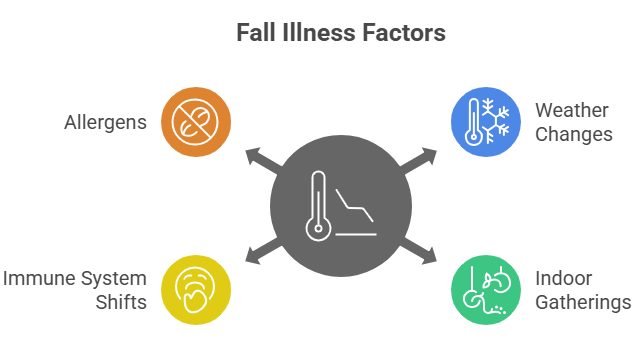
The flu is a highly contagious viral infection that tends to peak in fall and winter. Symptoms may include fever, chills, muscle aches, cough, and fatigue. While most people recover within one to two weeks, the flu can cause serious complications for children, older adults, and those with chronic conditions.
Colds are frequent in the fall months, spreading easily through respiratory droplets. Symptoms such as runny nose, sore throat, and congestion are typically mild but can linger for a week or more. Though usually harmless, common colds can weaken the immune system and make individuals more susceptible to other infections.
Fall allergies are often triggered by ragweed pollen, mold spores, and dust. Common symptoms include sneezing, itchy eyes, congestion, and fatigue. While not contagious, allergies can significantly impact quality of life if left unmanaged.
Bacterial infections such as strep throat also become more common in fall. Symptoms include severe sore throat, fever, and swollen lymph nodes. Unlike viral illnesses, strep requires antibiotic treatment to prevent complications. Other respiratory conditions like bronchitis or sinus infections, can also emerge during this time.
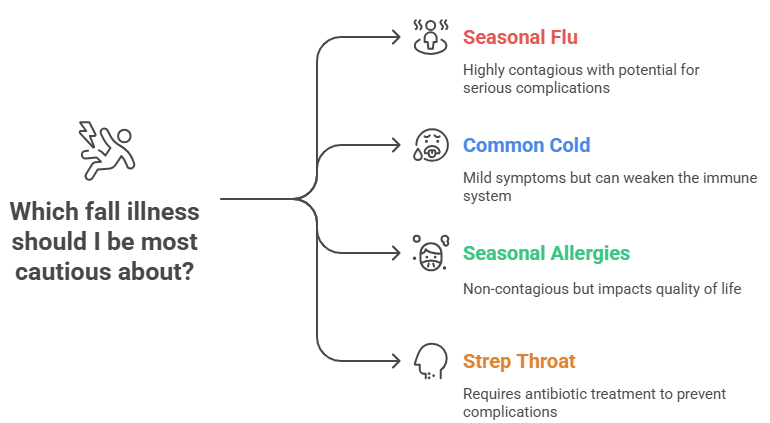
The flu vaccine is one of the most effective ways to reduce the risk of severe illness. Annual vaccination is recommended, especially for children, older adults, and individuals with underlying health conditions.
Good nutrition, restful sleep, and regular exercise play vital roles in immune health. A balanced diet rich in vitamins C and D, proper hydration, and consistent physical activity all contribute to better defense against illness.
Simple habits like frequent handwashing, covering coughs and sneezes, and disinfecting high-touch surfaces can dramatically lower the spread of germs.
Avoid close contact with individuals who are sick, and stay home if you feel unwell. In crowded or high-risk settings, wearing a mask may provide additional protection.
For those prone to seasonal allergies, prevention is key. Over-the-counter antihistamines, closing windows during high pollen days, and using HEPA filters at home can help reduce symptoms before they escalate.
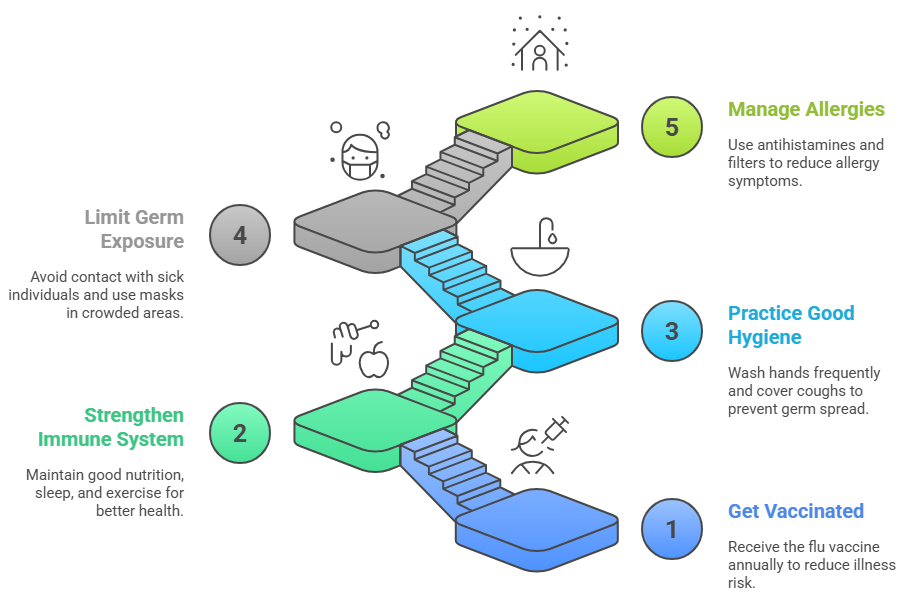
Sometimes, rest and home remedies aren’t enough. See a doctor if you experience:
A fever over 101°F that doesn’t improve
Shortness of breath, chest pain, or severe fatigue
A sore throat with swollen lymph nodes or white patches
A persistent cough, sinus pain, or symptoms lasting longer than 10 days
Prompt medical attention ensures the right diagnosis and treatment, helping you recover safely and prevent complications.
Fall may bring shorter days and cooler weather, but it doesn’t have to bring constant sickness. By staying proactive with vaccination, good hygiene, and healthy daily habits, you can lower your risk of flu, colds, and other seasonal illnesses. Paying attention to early warning signs and seeking care when needed ensures you stay strong, healthy, and ready to enjoy everything the season has to offer.
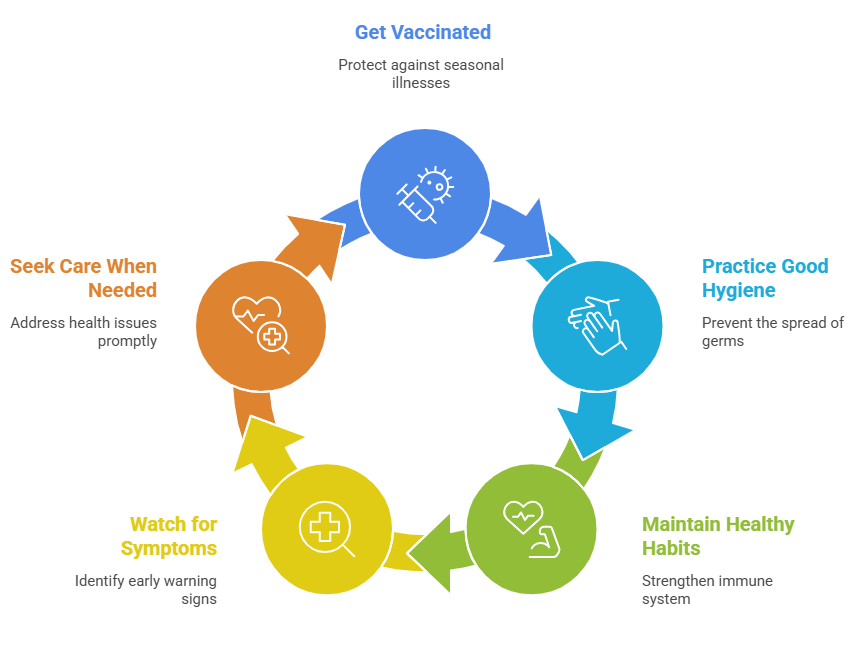
When seasonal illness strikes, quick care makes all the difference. At MI Express Primary Care in Canton and our other primary care clinic in Ann Arbor offer same-day visits, flu shots, and treatment for colds, allergies, and more. With experienced providers and convenient hours, we’re here to help you recover fast and prevent complications.
Schedule an appointment today and get the trusted care you need this fall.
Wash hands frequently, cover coughs, maintain distance from sick individuals, eat well, stay hydrated, get adequate sleep, exercise regularly, and consider vaccination.
The seasonal flu vaccine is most important. High-risk individuals may also benefit from COVID-19 boosters and pneumonia vaccines, depending on age and health conditions.
Colds are usually mild with runny nose and congestion. Flu comes on suddenly with fever, body aches, fatigue, and more severe respiratory symptoms.
Common fall illnesses include influenza (flu), common colds, seasonal allergies, strep throat, bronchitis, sinus infections, and other respiratory infections.
Seek medical care for high fever, persistent cough, shortness of breath, severe fatigue, sore throat with swollen lymph nodes, or symptoms lasting longer than 10 days.
